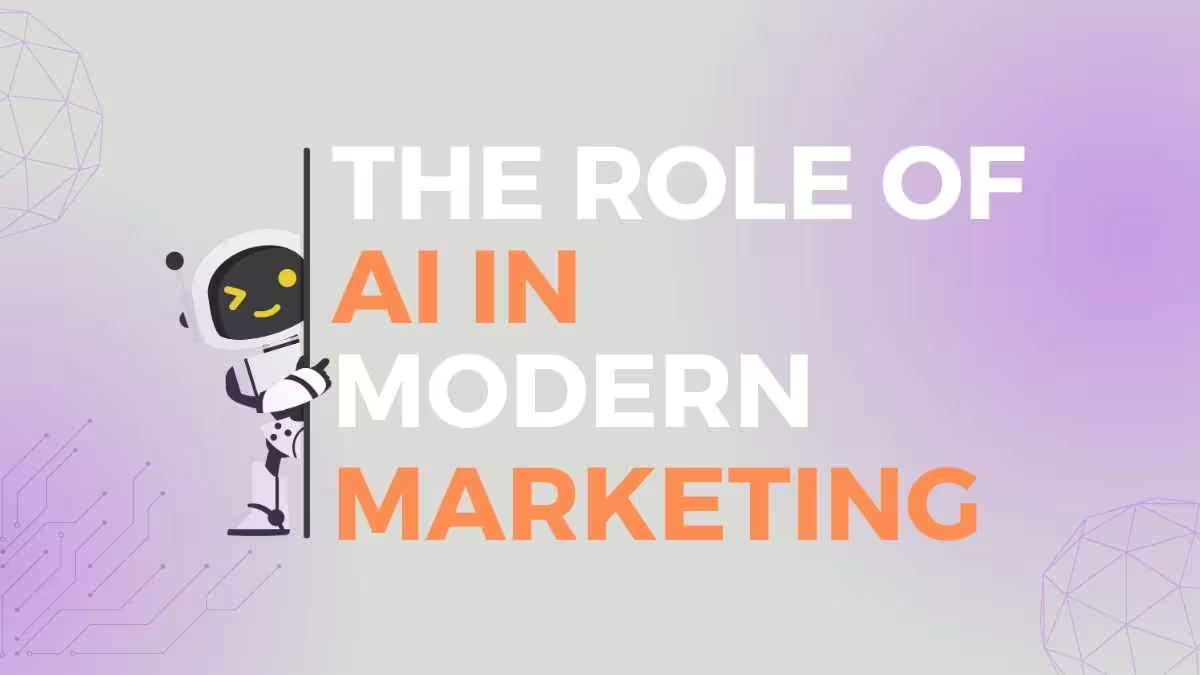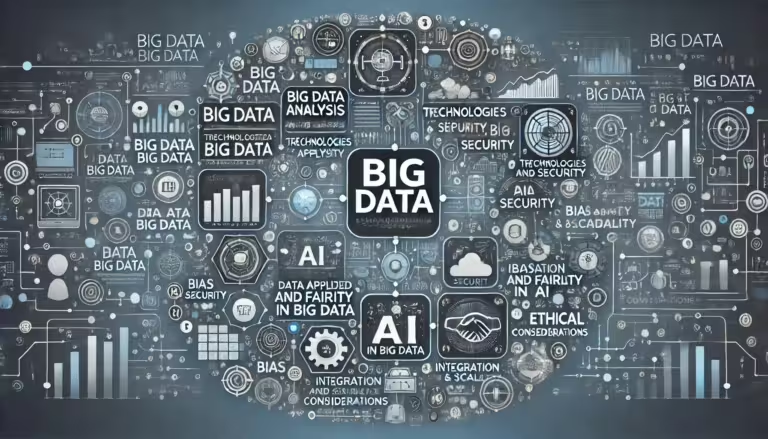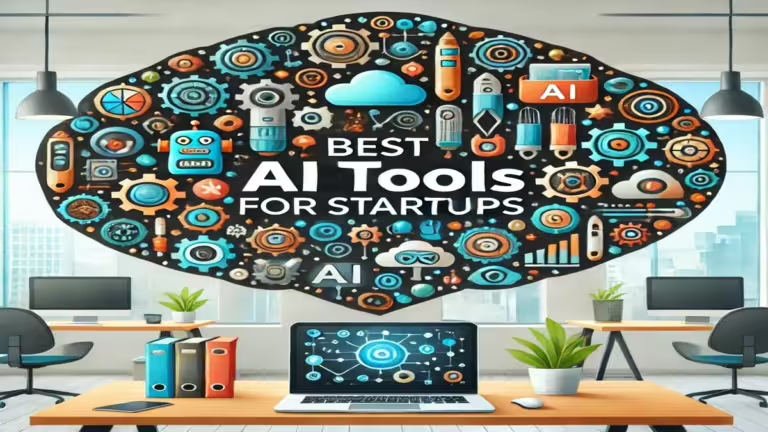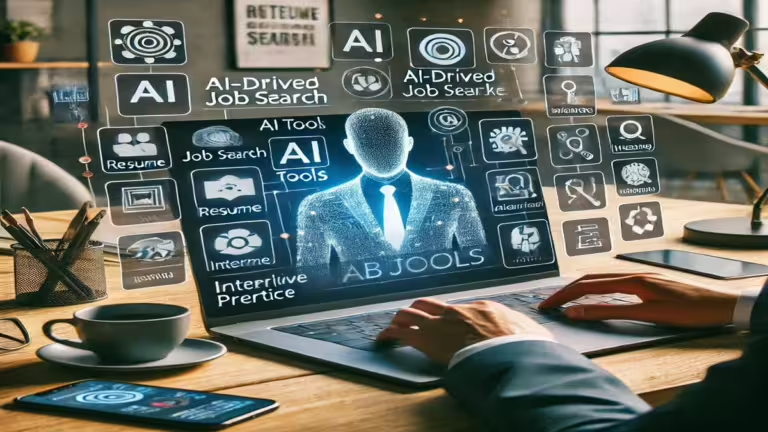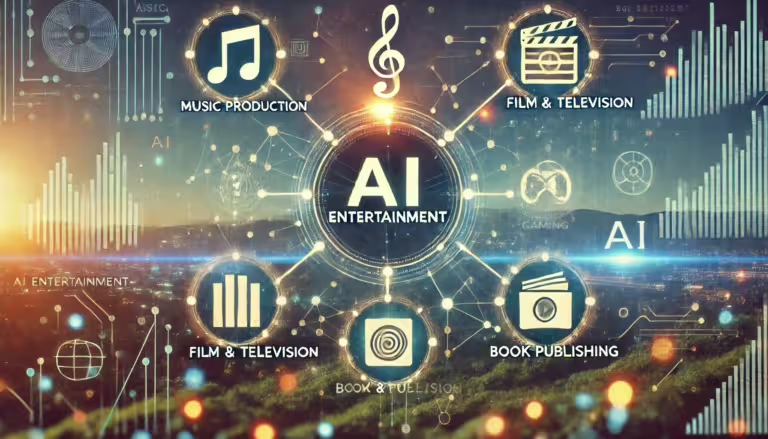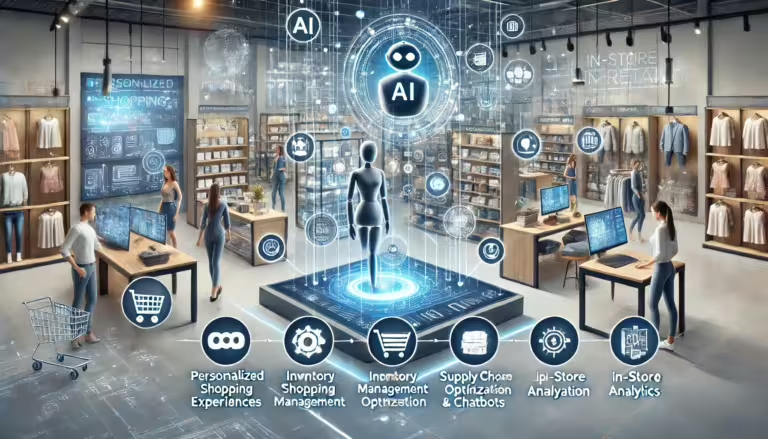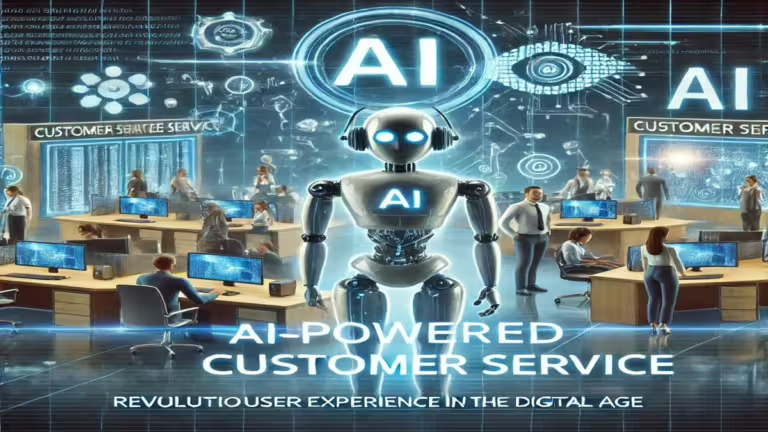In the ever-evolving landscape of digital marketing, artificial intelligence (AI) has emerged as a transformative force, reshaping how businesses connect with customers and make data-driven decisions. As consumers’ needs and preferences become increasingly complex, AI offers unprecedented opportunities to streamline marketing processes, deliver personalized experiences, and extract valuable insights from vast amounts of data. This blog post explores the multifaceted role of AI in modern marketing, its impact on customer engagement, and the challenges and best practices associated with its implementation.
The Evolution of AI in Marketing
A Brief History of AI
Artificial Intelligence has come a long way since its initiation in the 1950s. In marketing, the journey of AI began with simple rule-based systems and has now evolved into sophisticated machine learning algorithms capable of processing and analyzing enormous datasets in real time.
From Mass Marketing to Personalization
- Traditional marketing relied on broad demographic targeting
- AI enables hyper-personalization and niche audience targeting
- Shift from one-size-fits-all to individualized marketing approaches
AI Technologies Transforming Marketing
1 Machine Learning
Machine learning algorithms analyze vast amounts of data to identify patterns and make predictions, enabling marketers to optimize campaigns and improve targeting.
2 Natural Language Processing (NLP)
NLP allows AI systems to understand and generate human language, powering chatbots, voice assistants, and content-generation tools.
3 Computer Vision
AI-powered image and video recognition technologies enhance visual content analysis and user experience.
4 Predictive Analytics
By analyzing historical data, AI can forecast future trends, customer behavior, and sales patterns.
Enhancing Customer Engagement with AI
1 Personalized Content Delivery
- AI algorithms analyze user behavior and preferences
- Tailored content recommendations increase engagement
- Dynamic website content adapts to individual visitors
2 Chatbots and Virtual Assistants
- 24/7 customer support and engagement
- Natural language interactions improve user experience
- Seamless integration with messaging platforms and websites
3 Voice Recognition and Smart Speakers
- Voice-activated shopping and brand interactions
- Personalized voice experiences based on user preferences
- Integration with smart home devices for contextual marketing
Data-Driven Decision Making
1 Real-Time Analytics
- AI processes large datasets instantly
- Uncovers correlations and trends in customer behavior
- Enables agile marketing strategies and quick pivots
2 Predictive Modeling
- Forecasts future sales based on purchasing patterns
- Identifies potential churn risks and opportunities for upselling
- Optimizes inventory management and supply chain decisions
3 Customer Segmentation and Targeting
- AI creates more accurate and granular customer segments
- Enables hyper-targeted marketing campaigns
- Improves ROI by focusing resources on high-value segments
AI-Powered Marketing Automation
1 Email Marketing Optimization
- AI determines optimal send times for individual recipients
- Personalizes email content and subject lines
- A/B testing at scale to improve open and click-through rates
2 Social Media Management
- AI-driven content curation and scheduling
- Sentiment analysis for brand monitoring
- Automated responses to common customer inquiries
3 Programmatic Advertising
- Real-time bidding and ad placement optimization
- Dynamic creative optimization based on user data
- Cross-channel campaign management and attribution
Enhancing Customer Lifetime Value
1 Predictive Customer Service
- AI analyzes past interactions to anticipate customer needs
- Proactive problem-solving and personalized support
- Improved customer satisfaction and loyalty
2 Intelligent Product Recommendations
- AI-powered recommendation engines increase cross-selling
- Personalized suggestions based on browsing and purchase history
- Dynamic pricing strategies to maximize conversions
3 Churn Prevention and Customer Retention
- AI identifies at-risk customers before they churn
- Personalized retention campaigns and offers
- Continuous optimization of customer experiences
AI in Content Creation and Curation
1 Automated Content Generation
- AI-powered tools for creating product descriptions, ad copy, and social media posts
- Natural language generation for personalized email content
- Video and image creation assisted by AI
2 Content Curation and Aggregation
- AI algorithms curate relevant content from various sources
- Personalized content feeds for individual users
- Improved content discovery and engagement
3 SEO Optimization
- AI-driven keyword research and content optimization
- Predictive analysis of search trends and user intent
- Automated meta tag generation and internal linking
AI tools for Modern Marketing
AI-powered CRM tools revolutionize how businesses manage customer relationships by automating data analysis, predicting customer behavior, and optimizing sales processes. These systems use machine learning algorithms to analyze vast amounts of customer data, providing actionable insights and improving efficiency.
- Salesforce Einstein: Integrates AI across the Salesforce platform, offering predictive analytics, automated task completion, and intelligent recommendations.
- HubSpot AI: Enhances the HubSpot CRM with features like predictive lead scoring, content optimization, and chatbots for sales and support.
- Zoho AI: Incorporates AI into Zoho’s CRM suite, providing anomaly detection, sales forecasting, and intelligent workflow automation.
1 Content Creation and Optimization
Description: AI content creation tools use natural language processing and machine learning to generate, optimize, and personalize content at scale. These tools can significantly reduce the time and effort required for content production while maintaining quality and relevance.
- Jasper.ai (formerly Jarvis): Offers AI-powered content creation for various formats, including blog posts, social media content, and marketing copy.
- Copy.ai: Specializes in generating marketing copy, product descriptions, and social media content using advanced language models.
- Writesonic: Provides AI-assisted content creation for articles, ads, and product descriptions, with a focus on SEO optimization.
2 Chatbots and Conversational AI
Description: AI-powered chatbots and conversational interfaces provide 24/7 customer support, lead qualification, and personalized interactions. These tools use natural language processing to understand user queries and machine learning to improve responses over time.
- MobileMonkey: Offers a multi-channel chatbot platform for Facebook Messenger, SMS, and web chat, with features like drip campaigns and audience segmentation.
- ManyChat: Specializes in chatbots for marketing and customer support on Facebook Messenger and SMS, with visual flow builders and integration capabilities.
- Drift: Provides conversational marketing and sales tools, including chatbots, targeted messaging, and AI-powered lead routing.
3 Email Marketing
Description: AI-enhanced email marketing tools optimize subject lines, content, and send times to improve open rates, click-through rates, and overall campaign performance. These systems use machine learning to analyze recipient behavior and preferences.
- Phrasee: Specializes in AI-generated and optimized subject lines, using natural language generation to create engaging copy.
- Persado: Offers AI-powered content generation for email marketing, with a focus on emotional language that resonates with specific audience segments.
- Seventh Sense: Provides AI-driven send time optimization and frequency management for email campaigns, tailored to individual recipient behaviors.
4 SEO and Content Strategy
Description: AI-powered SEO and content strategy tools use machine learning algorithms to analyze search trends, optimize content, and provide competitive insights. These tools help marketers create more effective content strategies and improve search engine rankings.
- BrightEdge: Offers AI-driven SEO insights, content optimization recommendations, and performance tracking across various digital channels.
- MarketMuse: Provides AI-powered content planning and optimization tools, including topic modeling and content quality scoring.
- Crayon: Specializes in competitive intelligence, using AI to track and analyze competitors’ digital footprints and market trends.
5 Customer Segmentation and Personalization
Description: AI-driven personalization tools analyze customer data to create highly targeted segments and deliver personalized experiences across various touchpoints. These systems use machine learning to continuously refine segmentation and personalization strategies.
- Dynamic Yield: Offers an AI-powered personalization platform that enables real-time content, product, and offer individualization across web, mobile, and email.
- Optimizely: Provides AI-enhanced experimentation and personalization tools for websites, mobile apps, and connected devices.
- Adobe Target: Part of the Adobe Experience Cloud, it uses AI to deliver personalized experiences, conduct A/B testing, and optimize customer journeys.
6 Voice and Visual Search Optimization
Description: As voice and visual search become more prevalent, AI tools in this category help optimize content for these emerging search modalities. These tools use natural language processing and computer vision technologies to enhance search visibility and user experience.
- Yext: Offers AI-powered search solutions that optimize business information for voice search and provide natural language processing for site search.
- Aimages: Provides AI-driven image recognition and tagging services to improve visual search optimization and content discoverability.
- Google Lens API: Enables developers to integrate Google’s visual search capabilities into their applications, enhancing image-based search and recognition features.
7 Predictive Analytics
Description: AI-powered predictive analytics tools use machine learning algorithms to forecast future trends, customer behaviors, and business outcomes. These insights help marketers make data-driven decisions and optimize strategies proactively.
- Tableau CRM (formerly Einstein Analytics): Offers AI-driven analytics and visualization tools integrated with Salesforce, providing predictive insights and recommended actions.
- IBM Watson Analytics: Provides advanced AI-powered analytics capabilities, including natural language querying and automated predictive modeling.
- RapidMiner: Offers a comprehensive data science platform with predictive analytics capabilities, including automated machine learning and model deployment.
Challenges and Ethical Considerations
1 Data Privacy and Security
- Ensuring compliance with data protection regulations (e.g., GDPR, CCPA)
- Implementing robust security measures to protect customer data
- Transparent data usage policies and opt-in mechanisms
2 AI Bias and Fairness
- Addressing potential biases in AI algorithms
- Ensuring diverse and representative training data
- Regular audits and adjustments to maintain fairness
3 Balancing Automation and Human Touch
- Determining appropriate levels of AI intervention
- Maintaining brand personality and human connection
- Training staff to work alongside AI systems effectively
Best Practices for Implementing AI in Marketing
1 Start with Clear Objectives
- Define specific goals and KPIs for AI implementation
- Align AI initiatives with overall marketing strategy
- Prioritize high-impact areas for initial AI adoption
2 Invest in Quality Data
- Ensure data accuracy, completeness, and relevance
- Implement robust data collection and management processes
- Regularly clean and update datasets to maintain quality
3 Foster Cross-Functional Collaboration
- Foster collaboration between marketing, IT, and data science teams
- Encourage knowledge sharing and skill development
- Create a culture of innovation and experimentation
4 Embrace Continuous Learning and Optimization
- Regularly evaluate AI performance against set objectives
- Stay updated on emerging AI technologies and applications
- Implement feedback loops for continuous improvement
Also Read: The Role Of AI In Cybersecurity: Protecting Your Digital World
Conclusion
As AI continues to evolve and integrate into marketing practices, it offers unprecedented opportunities for businesses to connect with customers on a deeper level and make more informed decisions. From personalized content delivery to predictive analytics and automated campaign optimization, AI is revolutionizing every aspect of modern marketing. However, with great power comes great responsibility. Marketers must navigate the challenges of data privacy, ethical considerations, and maintaining a human touch in their AI-driven strategies.
By embracing AI technologies thoughtfully and strategically, businesses can create more engaging, effective, and efficient marketing campaigns that resonate with their target audiences. As we look to the future, it’s clear that AI will play an increasingly central role in shaping the marketing landscape, driving innovation, and delivering exceptional customer experiences. Those who successfully harness the power of AI in their marketing efforts will be well-positioned to thrive in an increasingly competitive and dynamic digital marketplace.
